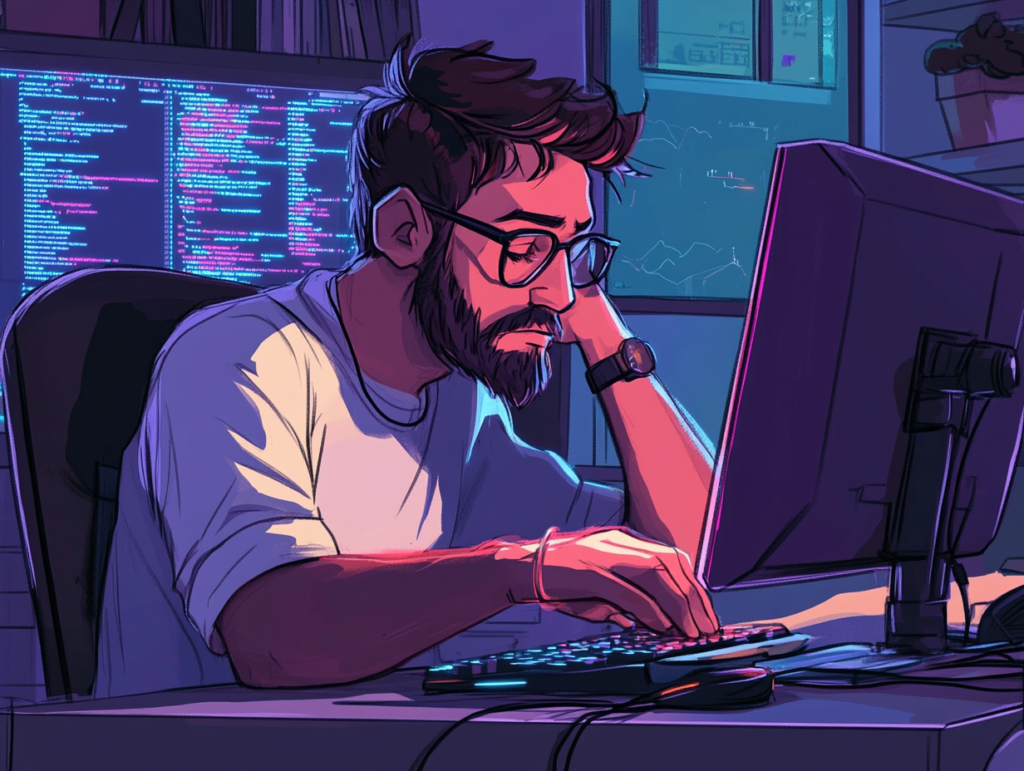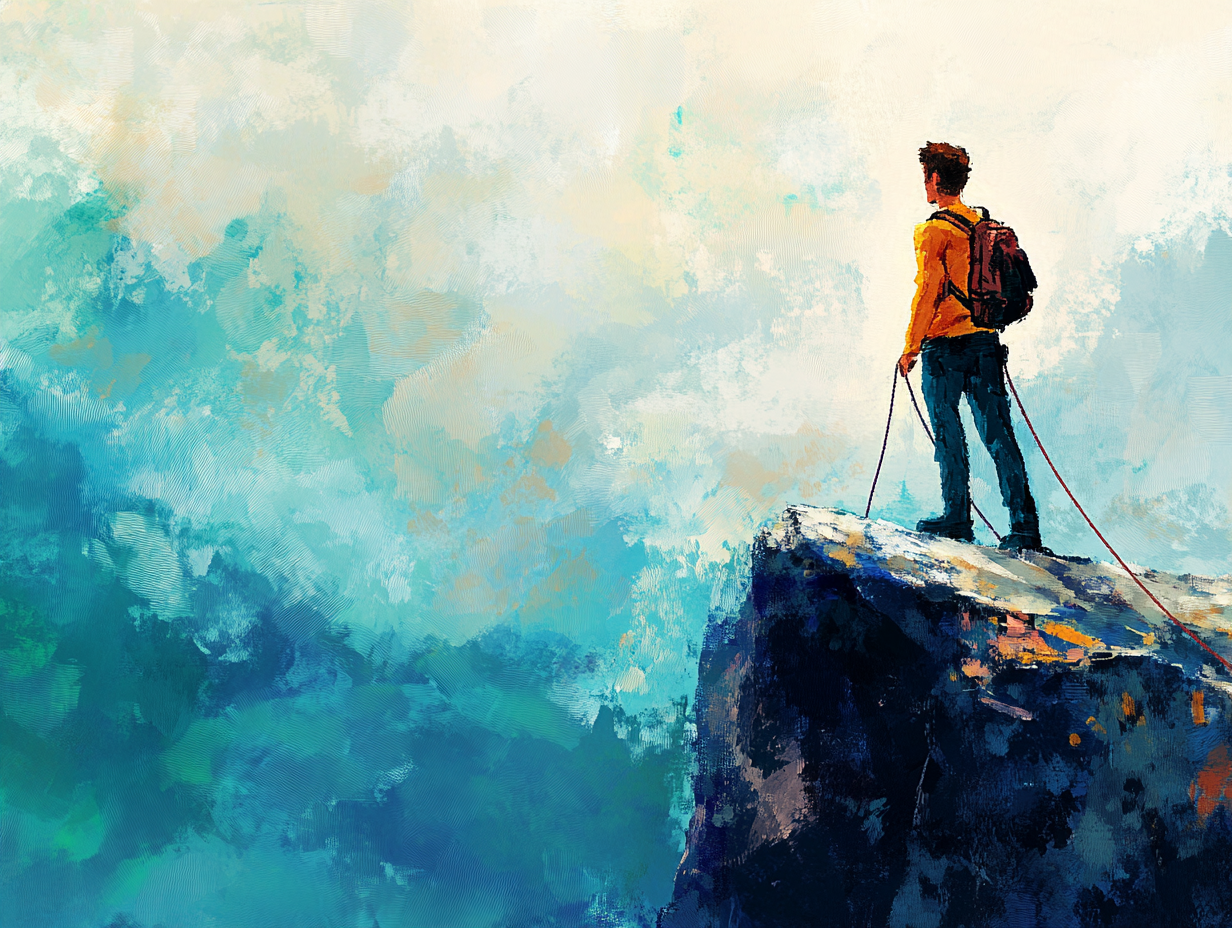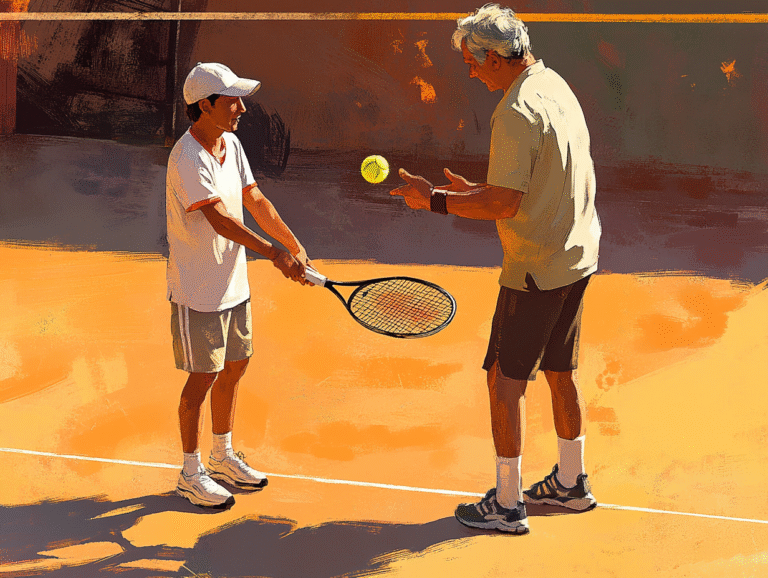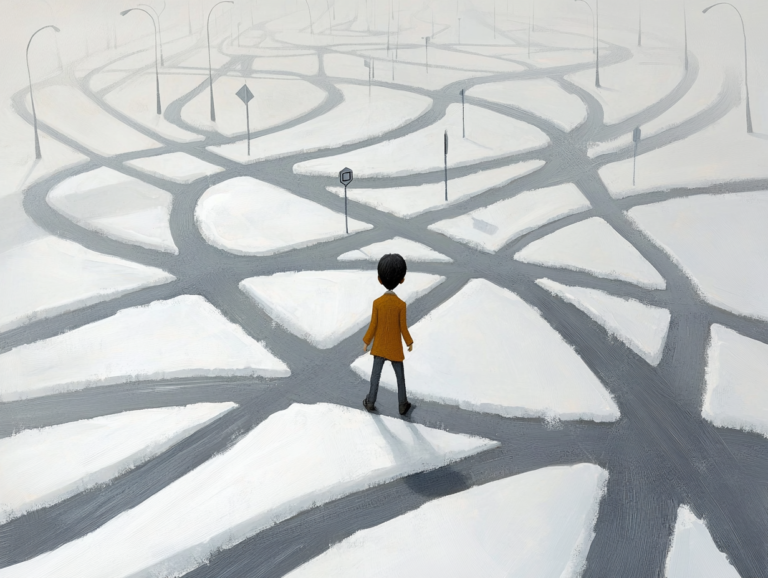Have you ever struggled with something you initially believed wasn’t for you, only to become an expert at it later in life? I have, and several of my friends have too. In this post, I want to share the exact moment when I realized I wasn’t as bad as I thought. I’ll dive deeper into how it happened and why that realization didn’t come naturally at first. Hopefully, my story will provoke your own reflections and help you re-examine your journey.
I now make a living as a programmer. However, in college, despite several friends suggesting I switch my major to computer science in my sophomore year, I wasn’t confident enough to make such a move. At that time, I felt I had zero talent in computer science. Subconsciously, I was convinced that my life would be miserable if I made that switch. “Why?” you might ask. To explain, let me take you back to my experience before sophomore year.
I came to the U.S. in ninth grade. That year, my academic advisor signed me up for a computer programming class. My English was poor, which severely affected my learning experience in class. At the same time, I relied heavily on my teacher to help me debug almost every coding assignment. I learned Java for over half a year without ever realizing that it was an object-oriented programming language. Looking back, any software engineer would’ve said, “This kid is struggling,” because not only did I struggle with syntax, but I also didn’t grasp foundational concepts. That was my first exposure to programming, and it remained my only experience with it for the next three years of high school.
For my undergraduate studies, I attended Northwestern University. Every engineering student was required to learn programming in their freshman year, and the language of choice was MATLAB. Most programmers would agree that MATLAB is a terrible language if you want to pursue computer science—it’s neither standard, flexible, nor straightforward like many other languages. Worse still, I happened to hang out with the top-tier students in that class back then. You might think that’s a good thing, but in reality, it wasn’t. They were not only brilliant, but they were also always available to help me debug. Every time I worked on an assignment with them, I sought their help because it was so easy. They “babysat” me to the point where I started questioning myself: Why are they so smart? Why am I so useless?

The real turning point came in the summer of my junior year when I worked at a molecular modeling lab. There, I was assigned tasks that I had to complete independently. Most of these tasks involved writing bash scripts, which was difficult because I had no experience with Linux systems and had never written bash scripts before. I had to learn and debug at the same time. Unlike my previous programming experiences, this time, no one was there to help. I had to rely on myself. That summer changed everything. It was the first time I felt a rush of excitement after debugging for hours and finally fixing my code. It was also the first time my mentor praised me for writing a smart piece of code he hadn’t thought of. For the first time, I realized that maybe I wasn’t so bad at programming after all. My confidence grew, and I became increasingly interested in computer science.
It was like a snowball rolling downhill—it started slowly but quickly gained momentum. For my graduate studies, I attended the University of Pennsylvania, where I took on even bigger challenges, excelling in graduate-level computer science classes. Although I hadn’t majored or minored in computer science as an undergraduate, my newfound confidence and talent stayed with me. I faced one challenge after another, outperforming classmates from prestigious undergraduate computer science programs and earning praise from my professors. The momentum kept building.
Today, I’m the founder of Sharepon, an online platform where people help each other find the best deals. I coded the entire platform, from the very front end to the very back end, by myself. It’s a sophisticated system designed to respond quickly, even under heavy workloads. Back when I was a freshman, I never could have imagined such an achievement.
Looking back, I see three main reasons why I initially struggled with programming:
- I wasn’t in a position where I had to be self-reliant.
If you always rely on others to do the work for you, you’ll never grow, regardless of your innate talent. I believe many of us need adversity or an environment where we have no choice but to rely on ourselves to truly unleash our potential. Mastery comes from frequent practice, and without being pushed into situations where you must use your skills, you won’t develop them. If you never bring young Usain Bolt to the track, he’ll never become the fastest man in the world. - Small achievements are just as important as big ones.
I firmly believe in the power of encouragement and affirmation. Every time you accomplish something new or difficult, no matter how small, it deserves recognition. Those small accomplishments eventually lead to big ones. By consistently acknowledging your own progress, you build confidence, which you’ll need to face larger challenges. In the end, you’ll be able to say with pride, “This challenge was made for me, and I’m the best person among all my peers to overcome it.” - You don’t have to be in the top 5 in the world—being in the top 5% makes you an expert, too.
If, like me, you attended top schools and surrounded yourself with high-achieving classmates, you might feel like the least competent person in the room. That’s okay. The fact that you made it to that room means you’ve already outperformed so many others. You’re a star too! You’re competitive and capable of making great things happen. Even if I were to lose to my college friends in a coding competition, I’d still be confident knowing I could beat 95% of the contestants. If our society needs a new tech product, I wouldn’t wait for someone else to create it—I know I’m just as capable of building it, if not better.
I hope my story provides you with some enlightenment, relief, or self-acceptance. I have friends who’ve lost themselves in the pursuit of reaching greater heights. If you find yourself in the same situation, pause for a moment and reflect on how far you’ve already come. You’re standing higher than you realize, and you’re more capable than you think. You’re already great, or you’re on your way to becoming an expert too! What small victories have you achieved recently? Remember, every step counts on the path to greatness!




